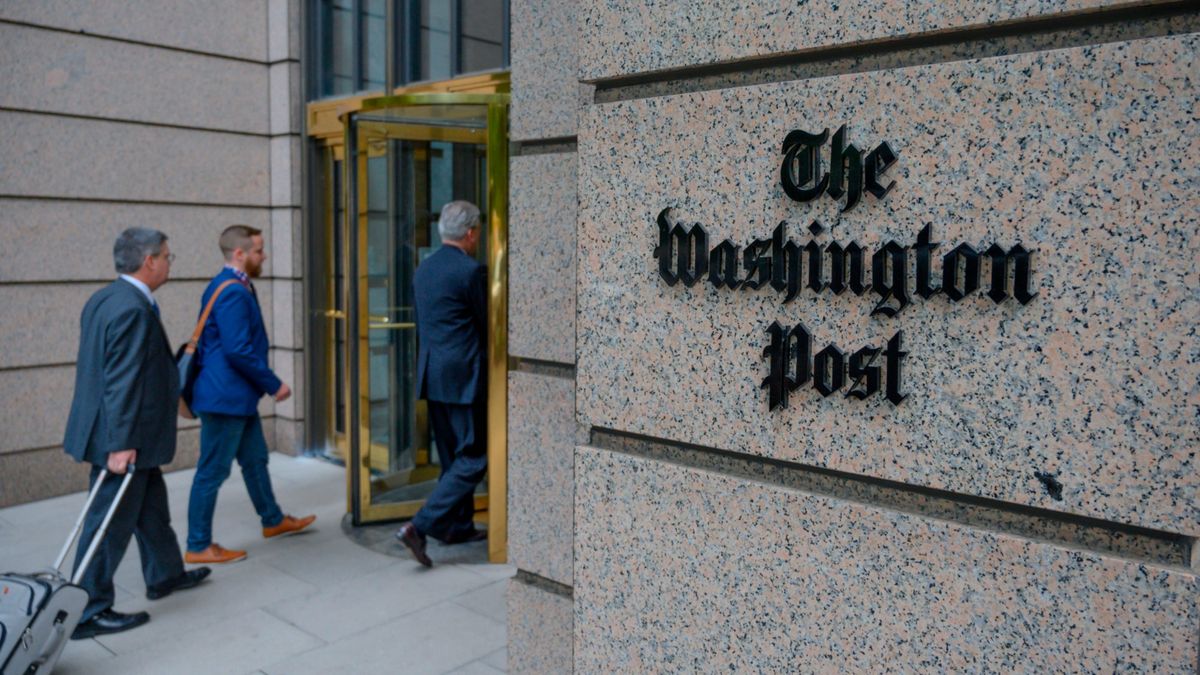'Some news organizations will fight, in an atmosphere of constant anxiety'

```html
The State of American Discourse and Culture
The Washington Post's Decline: A Loss for Balanced Journalism
Is the Washington Post contributing to the very polarization it should be fighting against? George Packer, writing for The Atlantic, argues that the Post is failing in its duty to represent a broad range of views. Instead of fostering healthy public discourse, it's becoming another echo chamber in an increasingly fractured media landscape.
Packer believes a national newspaper should be a platform for diverse, thoughtful perspectives, reflecting public opinion rather than driving division. He laments the Post's move away from this ideal, suggesting its current trajectory echoes the narrow, partisan media outlets that contribute to America's noisy and often unproductive political climate.
"A national newspaper like the Post should speak to a democratic public and represent public opinion, which means publishing the widest possible range of thoughtful views." - George Packer
The Power of Independent Film: A Call for Creative Courage
Bing Chen, writing in Time, champions the importance of independent film in a time of increasing risk aversion within the movie industry. He argues that while major studios chase the safety of familiar franchises, indie films remain vital breeding grounds for creative expression and societal progress.
Chen points out that in the face of political and economic pressures, the film industry has largely opted for predictable sequels and reboots. However, he believes independent cinema offers a powerful antidote, pushing boundaries and telling the bold, courageous stories that challenge us and expand our understanding of the world.
He calls for a new model for indie film, one that draws inspiration from successful creative movements and empowers filmmakers to tell stories that truly resonate with audiences.
Revitalizing School Lunches: A Necessary Investment in Children's Health
Ashley Tyrner-Dolce, writing for Newsweek, highlights Robert F. Kennedy Jr.'s focus on the critical issue of unhealthy school lunches. She argues that overhauling school meals is not just possible, but essential for the well-being of American children.
Tyrner-Dolce acknowledges the significant barriers many Americans face in accessing affordable, healthy food. She praises Kennedy Jr. for bringing attention to the long-neglected problem of poor nutrition among children and emphasizes the importance of investing in food as a foundation for health.
She advocates for prioritizing nutritious school meals as a straightforward initiative with far-reaching positive consequences.
The Democratic Party and the Working Class: A Call for Reconnection
Senator Sherrod Brown, writing in The New Republic, argues that the Democratic Party must reclaim its identity as the party of the working class. He believes this is both an electoral necessity and a moral imperative.
Brown argues that the party has drifted from its New Deal roots, both philosophically and in terms of its coalition. He suggests a disconnect between the party's self-image as a champion of the working and middle classes and its current political reality.
"Democrats must become the workers' party again... it is an electoral and a moral imperative." - Sherrod Brown